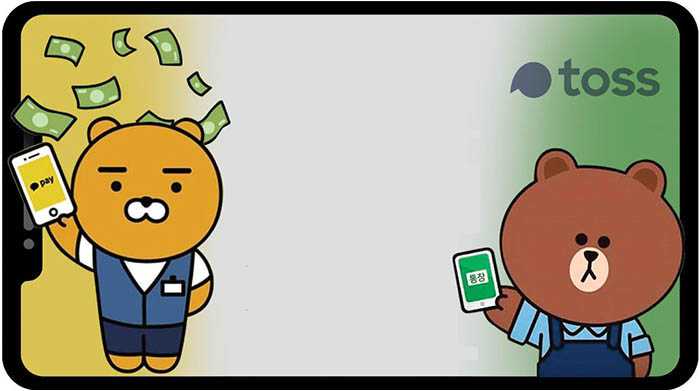Mobile Services Take over Financial Industry
05 June, 2021

Digital payment apps and other mobile economic services are actually booming as cash becomes an increasing number of a thing of days gone by.
Kakao Pay Securities right now has more than 4 million members, simply a year after it had been launched in March 2020. The country's third-largest brokerage Korea Expense and Securities had taken 15 years to achieve the feat.
Kakao Pay offers a good fund that invests the tiny change users are remaining with after shopping or perhaps working with taxis and has 1.9 million investors. And mobile payment platform Toss introduced a securities program in March of this year and already possesses 3 million users.
Techfin companies are rattling the foundations of the often cumbrous offline banking institutions and securities companies. Each user in Korea opens their monetary apps 225 times per month, or even more than seven times a evening, nine times a lot more than the cellular software of ordinary banks.
Online bank Kakao Bank, which is likely to be listed in the second half of the 12 months, is estimated to be value W40 trillion, twice how big is industry leader KB Financial Group (US$1=W1,115).
Toss, which began by offering easy cash transfers and bill repayment services in 2016, is definitely valued in W11 trillion, up practically 10 situations from W1.3 trillion in 2018, and is now bigger than Woori Lender (W8 trillion).
The apps allow persons to open accounts and commit by pushing a few control keys on their handsets. They also recommend possible shares or financial loans for expenditure with a straightforward search function.
The only benefit of traditional financial companies is greater stability, but they often ignore convenience from their lofty vantage and also have shed touch with the needs of modern customers. And they quite often hedge their own products jealously, whereas modern over the internet financial businesses happily promote the financial loans of their rivals and possibly tailor services with their needs.
Kakao Bank's hugely successful 26-week installment cost savings require buyers to deposit more money every week and provide added interest on plenty of weeks. The technique drew legions of little customers with the task of saving money.
Naver and Kakao are using their competitive edges found in the Internet search and mobile phone messaging markets and also have quickly increased their grasp on the financial industry. Users who were currently familiar with Naver's search and Kakao's messenger were rapid to embrace their store shopping, settlement, investment, brokerage and loan providers.
"There's no have to go to a bank for suggestions or search for individual investment products," an industry insider said. "All customers have to do is certainly to log onto a portal or messenger app."
There are 36 million Kakao Pay users and Kakao Bank is currently the country's top bank employed by 16.35 million people every month. Its twelve-monthly profits go up from W13.7 billion in 2019 to W113.6 billion last year.
Naver, in the meantime, is enjoying the synergy between Naver Pay out and Naver Shopping. Last year, transactions on Naver Looking reached W28 trillion, so that it is the No. 1 Internet shopping support. Toss has around 10 million users and plans to start banking provider from the next half of the year.
An identical trend where platform businesses successfully use their technological edge to expand their organization to financial products and services has took place in China and Southeast Asia.
Car-sharing apps Gojek on Indonesia and Grab on Singapore have become to dominate their nation's financial market segments, while on China, Alibaba and Tencent now take into account 90 percent of cellular financial transactions or US$1.6 trillion in 2019. In Southeast Asia, where various people have no bank-account, online start-ups are also beginning to dominate the financial market.
Source:
TAG(s):
